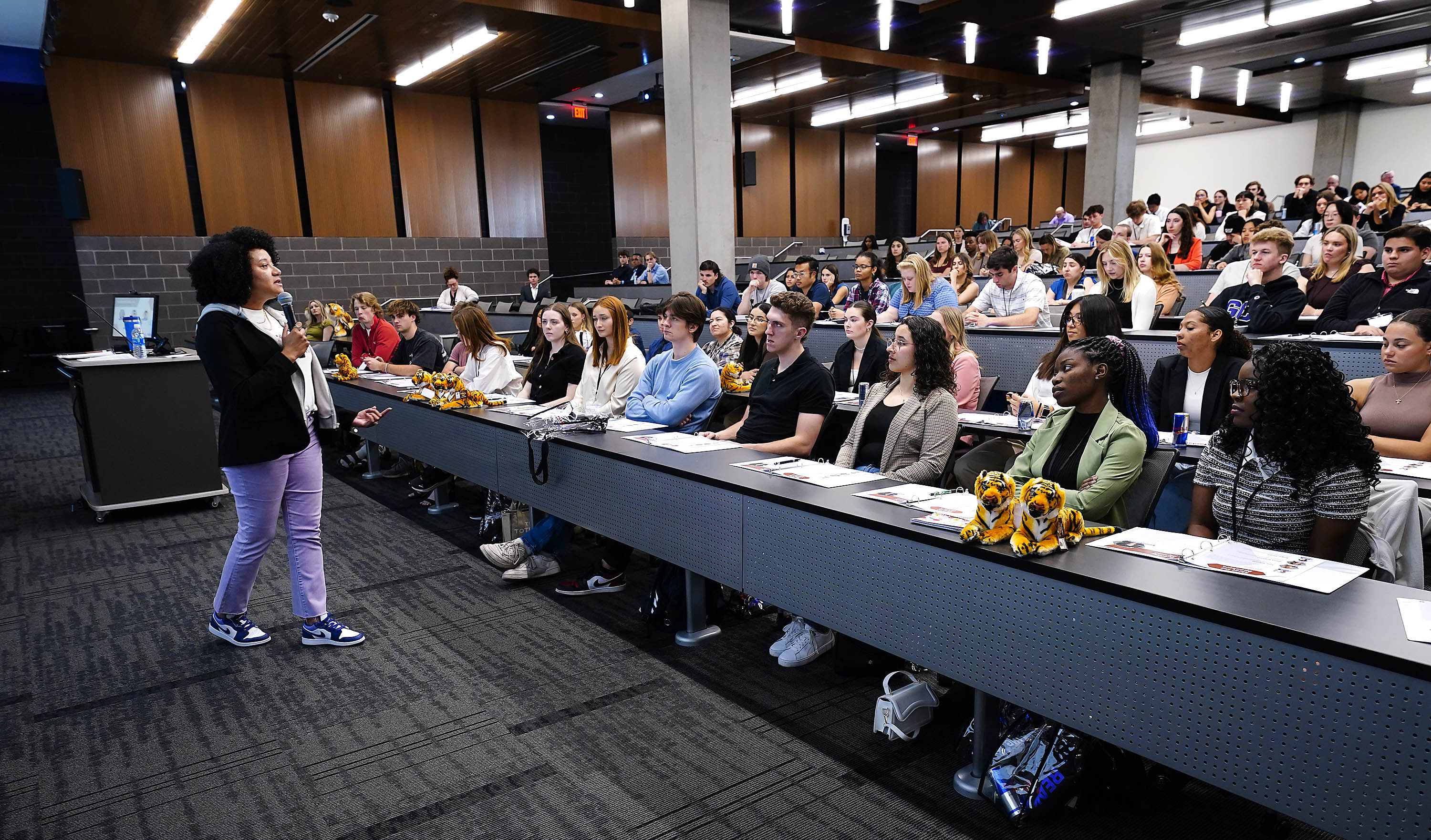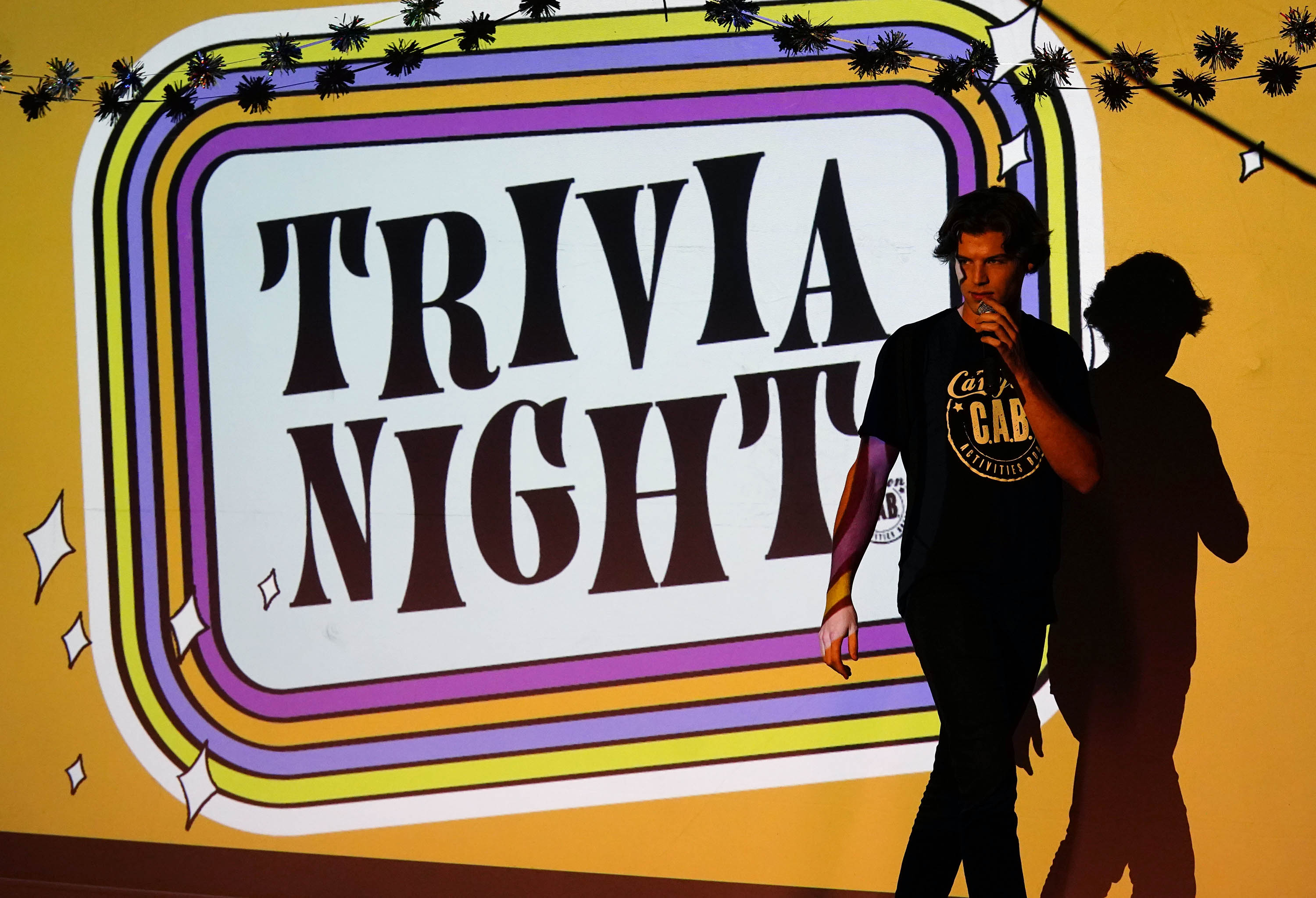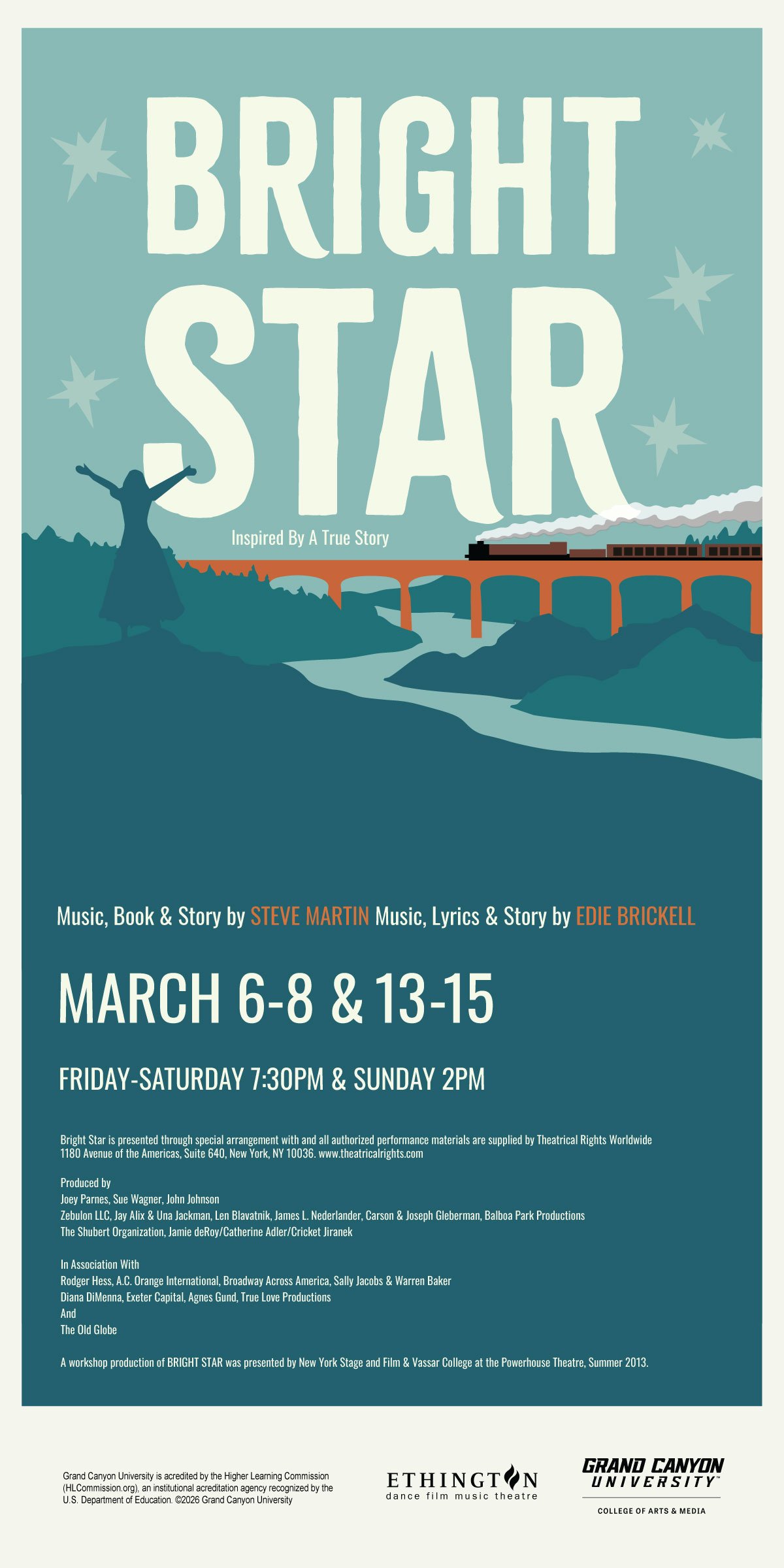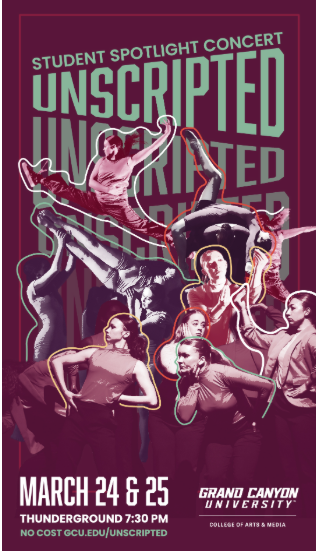
By Rick Vacek
GCU News Bureau
It never gets old. Not for Jerry Colangelo. Not for Colangelo College of Business students at Grand Canyon University. He talks. They listen. They learn.
And he still takes great pleasure in that.
“I do. I do,” the Phoenix business leader repeated for emphasis after speaking to another attentive audience Tuesday afternoon. “I think when you can share and those people are willing to absorb, you’re sharing things that would really help them, I believe.
“I would hope so.”
This talk was different from many others in that Colangelo’s ability to tell stories was built around a targeted topic: how he bought the Phoenix Suns and went on to close deal after deal after starting with practically nothing.
“You really can make something out of nothing,” he began.
But like most of his public appearances, the beauty of his storytelling is that, like a vine on the side of a stately building, it can go in a lot of different directions. With a Colangelo talk, you’re always going to hear something new and valuable no matter how many of his talks you’ve heard before.
For example, Colangelo recounted something that resonates with a lot of people: During his humble upbringing in suburban Chicago, he wondered what it would be like to live in the nicer houses “on the other side of the tracks.” Given his family’s finances, he said, there’s no way he could have gone to college without an athletic scholarship.
The rest of the story is fairly well-known, at least to those who are familiar with Colangelo’s incredible life story. He went to Kansas because he wanted to win a national championship, lockered next to Wilt Chamberlain and transferred to Illinois after Wilt the Stilt shattered those national-championship dreams by leaving to join the Harlem Globetrotters.
What a journey
But what the finance and sports business students in the room really could learn from was what Colangelo did after college. It’s a lesson in advance of the journey they will be embarking on in the next few years.
Colangelo said he still wanted to play basketball, so he did it three or four nights a week for $50 a game (“Not bad money in those days,” he said) while dabbling in business.
Then he met Dick Klein, a marketer who was interested in buying a pro basketball team, and before long Colangelo found himself right alongside Klein as he made presentations and went to banks in an attempt to make his dream come true.
“I’m 26 years old at the time, and I’m learning in the trenches,” Colangelo said.
The National Basketball Association’s price tag for expansion teams then was $750,000, but at the last minute the league raised it to $1.25 million. Undaunted, Klein’s group pulled together the money, and then Colangelo found himself in yet another learning experience.
“I did everything – marketing, scouting. Whatever needed to be done, I did it,” he said.
But then the NBA announced that it was going to expand to Milwaukee and Phoenix in the Bulls’ second year, and Colangelo was a hot commodity. He had opportunities in both locales but followed his gut and chose the desert.
“Why was I impressed? It was a blank slate,” he said.
Basketball fans in the Valley know the rest of the story, especially the team’s outstanding record during his 40-year ownership. But what the students in the room probably didn’t know was how Colangelo bought the Suns.
When he took the job, he asked for an option to buy the team. That was a fairly unheard of idea back then, but one of his gifts is his ability to think ahead.
He bought the team in 1987 even though his personal investment was only $500,000. Financial backing gave him 25 percent of the $44.5 million he would need, and after paying off the investors his share grew to 35 percent – but never higher.
“The secret to making the deal, if you don’t have much money, is control,” he said.
Landmark arena deal
He still had relatively little money when he built what was then America West Arena for $110 million. Again, his ability to build relationships was the foundation – for example, he gave a partner one-half of the concessions in return for covering cost overruns.
“It was rated the No. 1 project in the country in bang for buck,” he said. “We really blazed a whole new trail for how arenas and stadiums would be built. It’s one thing if you say, ‘I want to build this, I want to buy that,’ but you need to have money. I was never in that situation.”
Dr. Randy Gibb, the CCOB dean, underscored what Colangelo was emphasizing by asking students which is more important, money or relationships.
Colangelo made sure they got the message.
“Relationships,” he said.
The students then asked questions for more than a half-hour, and they could have gone on if there had been time. As it was, Colangelo gave them 75 minutes of wisdom. Topics he covered during the Q&A:
- Why he turned down a lucrative offer to run Madison Square Garden in New York: “I couldn’t see raising a family there.”
- What parental advice he would have for them: “There are so many opportunities that will come your way if you just keep your eyes open.”
- How he struggled even after arriving in Phoenix. “We ate a lot of pancakes when I first got married.”
- How he got involved in GCU and then helped the University transition to Division I athletics. He brought NCAA President Mark Emmert to campus, showed him the hybrid model of a dynamic campus and robust online program, and before long Emmert was calling university presidents saying, “I’ve seen the future of the NCAA.”
- The importance of education. “I think education is something everyone needs, and it’s almost never-ending today.”
Afterward, Colangelo noted that a number of sports business schools around the country did case studies of his book, “How You Play the Game.” Though it was published almost 20 years ago, the lessons still resonate today.
Some of the stories Colangelo shared Tuesday are in that book, but the main thing for students to hear was the way he trusted his gut instincts every step of the way.
“People sometimes tell me, ‘It’s easy for you to say, but everything worked out for you.’ No, I was this way when I had zero,” he said.
“One thing led to another and another and another. There’s kind of a tapestry to everything I’ve said.”
He could have added “with enthusiasm.” It never gets old.
Contact Rick Vacek at (602) 639-8203 or [email protected].














































